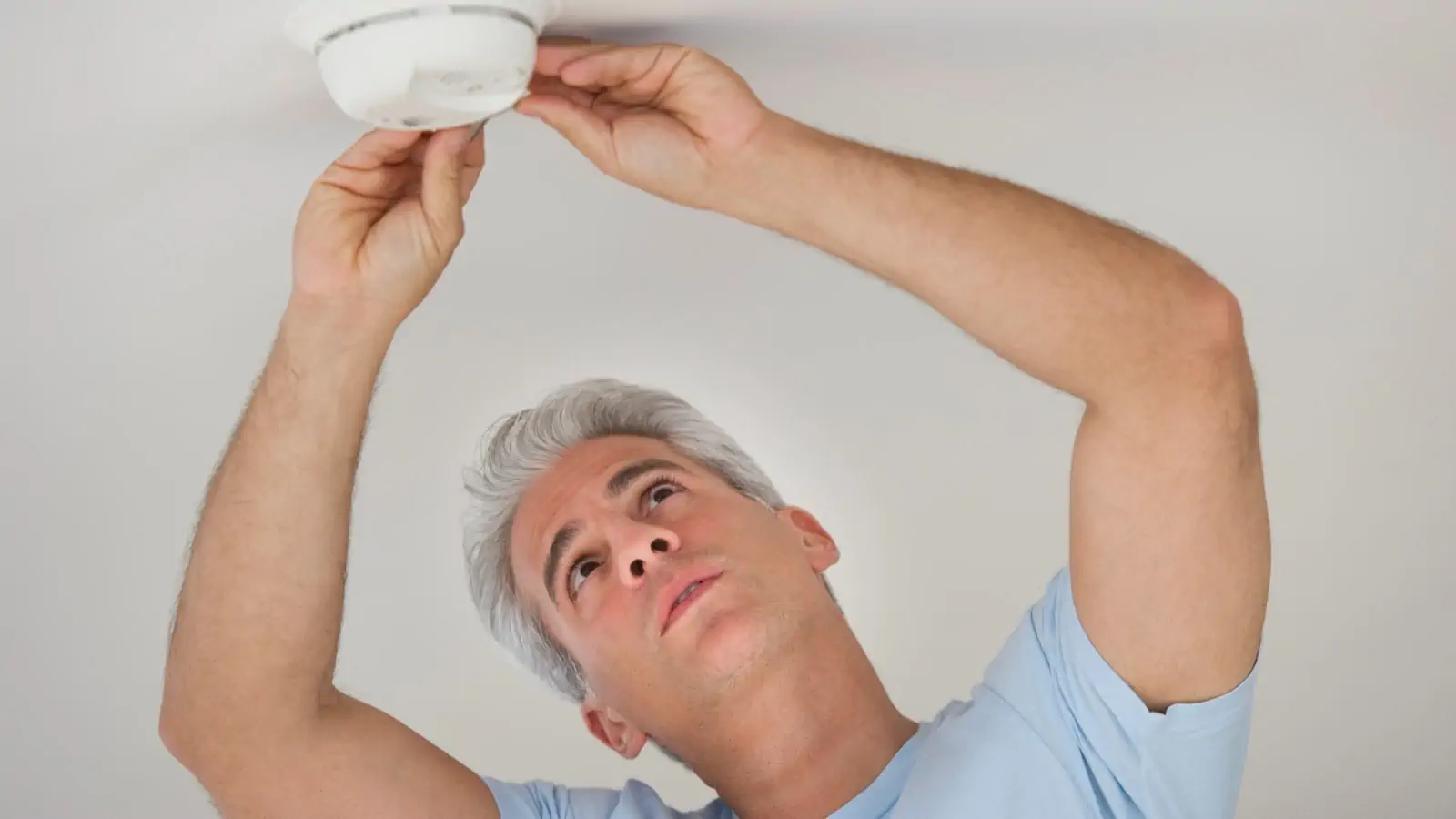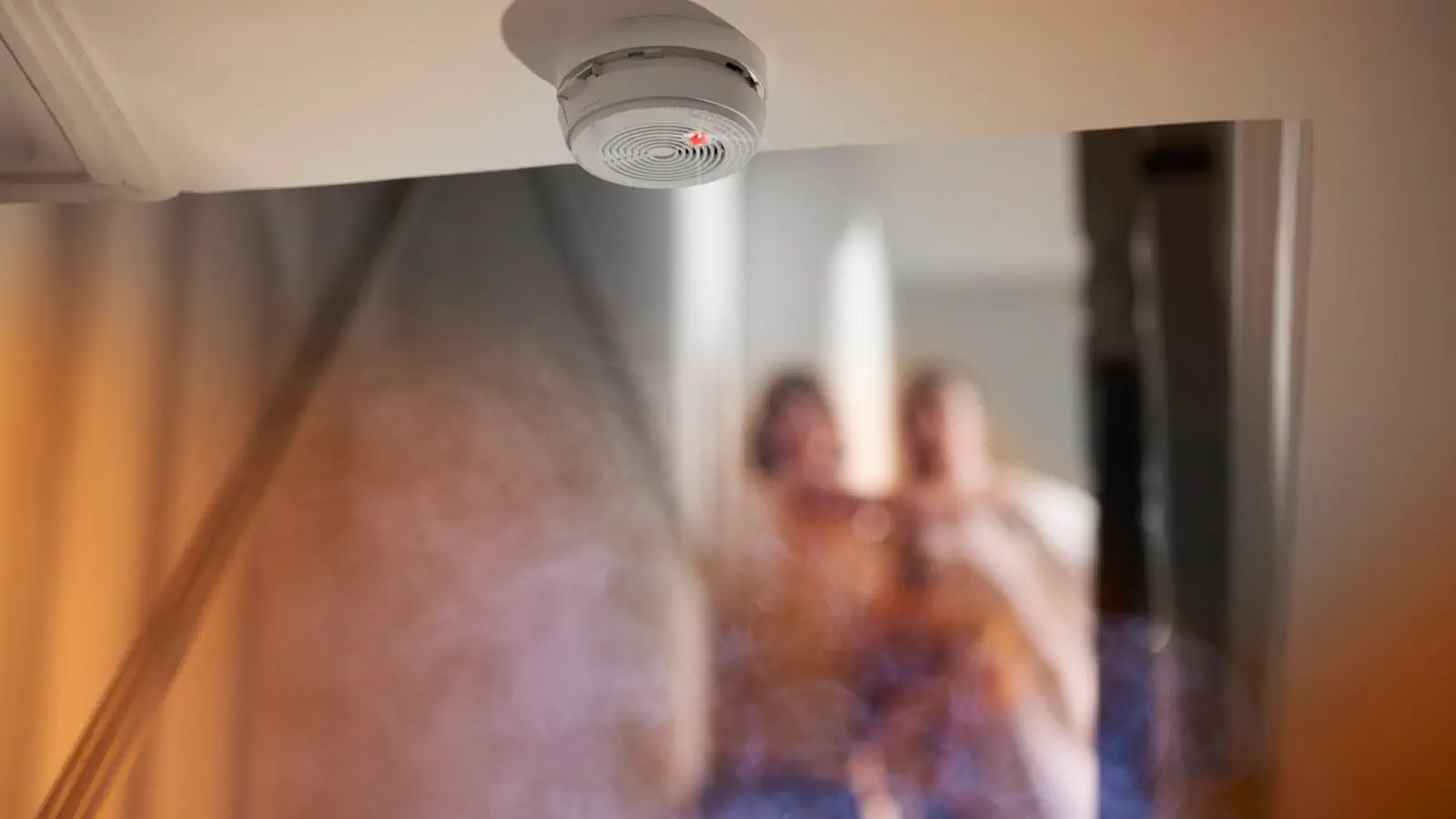Smoke detectors are the first line of defense against home fires. By alerting you to potential dangers, they give you precious time to act. But what should you do when your smoke detector starts beeping? Addressing this issue promptly is crucial. If it's a real alarm, it might provide enough time to extinguish a small fire early. If it's just a warning chirp, resolving the problem ensures your detector remains fully functional. Here's a helpful guide to understanding why your smoke detector might be beeping and what actions you should take. There are several reasons why a smoke detector might beep. Knowing the sound and its possible causes can help you troubleshoot quickly. All sounds from your smoke or carbon monoxide detector aren’t equal. Recognizing these differences is essential. Tone: A loud, continuous alarm or a series of three beeps repeating. Tone: A series of four beeps repeating. A short, single, intermittent chirp sound typically indicates an issue with your detector rather than an emergency. Fixing this promptly ensures your detector is ready to alert you in case of smoke or carbon monoxide. What Your Smoke Detector’s Chirp Could Mean A common cause of a chirping smoke detector is a low battery. Most battery-operated detectors start beeping when the battery is nearly depleted. Dust and debris can build up inside the smoke detector, leading to chirping. This can interfere with the sensor's ability to detect smoke effectively. Sometimes, a smoke detector might chirp due to an internal issue that requires professional assistance. Hard-wired smoke detectors are directly connected to your home’s electrical system. Often, they come with a battery backup in case of power outages. Here are some advantages of hard-wired detectors over plug-in or battery-powered ones. Hard-wired smoke detectors are more reliable because they have a constant power source. This reduces the risk of failure due to a dead battery. Many hard-wired smoke detectors are interconnected. This means if one detects smoke, all detectors in the house will sound an alarm. This provides early warning and extra time to evacuate, particularly in larger homes. With hard-wired smoke detectors, you don’t need to worry about changing batteries frequently. The battery backup only needs to be replaced occasionally. To ensure your smoke detectors are always in good working order, follow these safety tips: Test your smoke detectors at least once a month by pressing the test button. Replace the batteries annually or as recommended by the manufacturer. Install smoke detectors in key areas of your home: Avoid placing smoke detectors near windows, doors, or ducts where drafts might interfere with their operation. Keep your smoke detectors clean. Dust and debris can interfere with their operation. Regularly vacuum or use compressed air to clean them. Replace smoke detectors every 10 years, as they can become less reliable over time. Having functional smoke detectors can impact your homeowner’s insurance. Many insurance companies offer discounts if your home has smoke detectors. They may also require proof that your smoke detectors are in working order. If a fire occurs and your smoke detectors aren’t working, you could be held liable for any damages or injuries. Functional smoke detectors can provide evidence that you took reasonable steps to ensure safety. A beeping smoke detector might be annoying, but it’s also a critical warning sign. Knowing the common reasons for beeping and how to address them can save lives, property, and protect you from liability in case of a fire. If you’re ready to install a hard-wired smoke or carbon monoxide detector in Alberta, call Rümi! Our friendly technicians can handle the installation and any unknown beeps. Request Smoke & Carbon Monoxide Detectors today! Polyvinyl Alcohol(PVA) PVA has good water solubility, it has high glue rate and viscosity. Polyvinyl Alcohol(PVA),Polyanionic Cellulose -HV,Polyanionic Cellulose -LV,Sodium Carboxymethyl Cellulose-HV Santo Chemical Limited , https://www.santchem.comWhy Is My Smoke Detector Beeping?
Beep or Chirp: Know the Difference
Fire Alarm Beep
Carbon Monoxide Detector Beep
Chirps
Low Battery
What To Do:
Dust & Debris
What To Do:
Malfunction
What To Do:
Benefits of Hard-Wired Smoke Detectors

Reliability
Interconnected System
Fewer Battery Changes
Smoke Detector Safety Tips
Regular Testing
Proper Placement
Maintenance
Insurance & Liability
Better Safe Than Sorry
